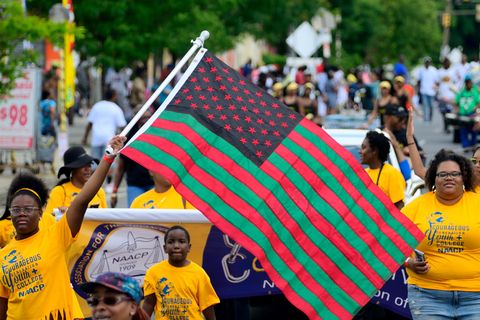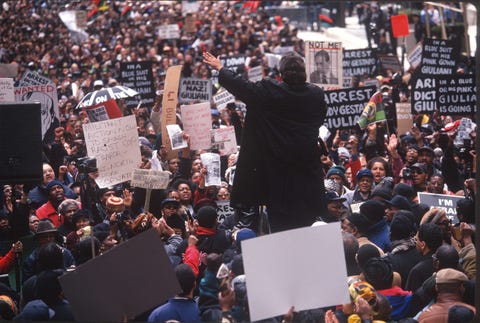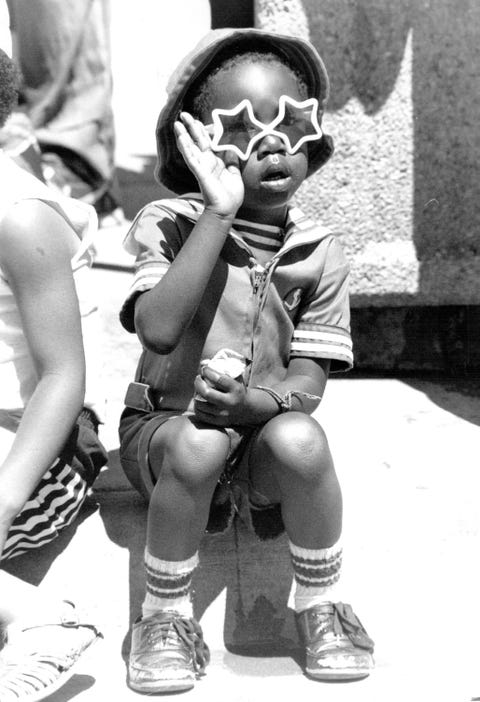“I’m looking forward to the long weekend!” “So, we’re off tomorrow.” “I’m so happy we have this Friday off!” And the list drags on of recent comments I’ve had to navigate in the virtual workplace. The “day off” being referenced is Juneteenth, and unlike July 4th, I haven’t received any questions about my plans or if I’m “doing anything fun” for the holiday. People are more inclined to wish me a “Happy St. Patrick’s Day,” which isn’t an American holiday or a day in which we have off. Juneteenth’s simplification to the long weekend is yet another example of a typical microaggression I, and many others like me, face while being Black in corporate America.
I’ve found myself having to remind people that we weren’t just off this Friday, June 18, for the sake of summer fun; we were off, as many companies now are, for a brand-new federal holiday commemorating the end of slavery in the United States. At the same time, I’ve watched some of my white coworkers and friends, many of whom didn’t know what Juneteenth was prior to last year, now champion the holiday. But if you too are off this Juneteenth, what are you doing to reconcile with the fact that this day of celebration for many is now just another day of rest for you?
Admittedly, I had never celebrated Juneteenth prior to 2020. I’ve chalked it up to never receiving a full education about the holiday, or even Black America at large, in the same way, schools teach about July 4th “Independence Day.” I never had the time off to engage in celebration and simply didn’t fully grasp what my grandmother always talked about when she explained that Juneteenth was our actual day of freedom. I often feel like that one TikTok trend, where you recount a particularly cringeworthy moment while “Sad Song” by Gia Giudice plays in the background. I hear the lyrics, “Waking up in the morning / Thinking about so many things / I just wish things would get better,” as I recount all the Fourth of Julys I’ve spent dressing in red, white, and blue celebrating the day of someone else’s liberation, at a time when Black people were still enslaved.
When people consider white supremacy and the spaces it occupies, the imagery quickly points to burning crosses on lawns or men in pointy white hoods. While that’s part of its long history, white supremacy is also more mundane, more nuanced. It’s the everyday systems and interactions that have made it so, until last year, Juneteenth was never acknowledged on a national level. It’s spending centuries only celebrating white freedom, while slavery persisted for nearly a century after the Declaration of Independence, aiding in the erasure of Black history. It’s rarely teaching about Juneteenth in schools, and thereby ignoring the full truth about Black people’s enslavement in this country.
But how did Juneteenth even breakthrough into the broader, national conversation? Last summer was, for many, an awakening. Breonna Taylor, Ahmaud Arbery, and George Floyd were killed within just months of each other. Even in a country where Black death and Black pain are so routine, this onslaught felt particularly devastating. The pandemic ensured that people were in their homes and glued to the internet, with little choice but to sit, watch, read, and grapple with what was happening—and has been happening—outside their doors. No one could ignore it. All eyes were forcibly peeled on these tragedies.
For the first time, so many of my counterparts were having to process this trauma, in the same way, I have done since I was a child. At just nine years old, I learned about Amadou Diallo, a Black immigrant from Guinea, who four police officers fatally shot after confusing him for a rape suspect in a year-old case. The officers were acquitted of all charges. It was then that I was truly able to comprehend the racial injustices that exist in this country, specifically around Black interactions with the police. For years, I have sat with this knowledge, the same kind that white people in 2020 seemed to be just learning.
In response to this widespread focus on Black lives mattering, people were keen to take to social media to post about how they were listening and educating themselves, vowing to do the kind of work that must persist over a lifetime. One way came in June 2020, when people commandeered a call from Jamila Thomas and Brianna Agyemang, two Black music executives, to pause the music industry’s daily business for a day of reflection. Instead, an overwhelming number of people took it upon themselves to post a black square on social media that day, as a low-effort way to signal they were not racist.
Then came Juneteenth, when companies were eager to give their employees off after years of ignoring the holiday. But overall as brands, and individuals, began to make grandiose commitments, the reality of the work quickly set in. “I noticed fatigue after the first week,” says Danielle Prescod, one half of 2BG (2 Black Girls) Consulting, an agency she founded alongside Chrissy Rutherford after both women went viral for calling out brands’ and influencers’ performative allyship—or deafening silence—last year. Since then, Rutherford and Prescod have used 2BG to formalize their antiracism training and challenge brands and influencers to do more beyond posting a black box. (They also donate a portion of their profits to Black organizations.) “If black squares went up on June 2, by June 7, they were like, ‘Is it fixed? We’re done. It’s time for summer vacation.’ I would certainly say by July, [the urgency] was over. If you really think about it, there was a lot of chatter around Juneteenth. Chrissy and I even had clients where we had to tell them, ‘You cannot have a Juneteenth celebration, then say something about freedom and independence on July 4.’”
“Everyone’s number one fear is getting called out,” Rutherford adds. “So they feel like they’ve made this pledge on June 2, they’ve made it through the fire and now they just have to keep their heads down, post a couple of Black people here and there and all will be fine. And now that no one is really looking at us, we can go back to doing whatever is easiest for us.”
Now here we are, nearly a full year later after white America’s collective discovery that racism still exists in our country. Black squares have been posted. There have been commitments to listen and learn. We have Juneteenth recognized as a federal holiday. But which of these actions translates into material improvements for Black people? As Congresswoman Cori Bush said on Twitter, it’s Juneteenth and so much more—it’s reparations, an end to police violence, an end to housing inequality, and a widespread, robust truth-telling about white supremacy.
This content is imported from Twitter. You may be able to find the same content in another format, or you may be able to find more information, at their web site.
So on your day off, I challenge you to commit to true action. I challenge you to listen and learn and then do. If you’re observing Juneteenth as someone who’s white, how are you using your time, voice, and resources to ensure that Black people experience real freedom and justice in the same way you do? Do you want to raise the bar or keep it on the floor? Before you share your excitement for another day off to your Black colleague or friend who’s waiting to see the Emmett Till Antilynching Act get passed or the effects of redlining to be addressed, think about what this day actually does for the Black people you know. While we absolutely will take the day to remember, ask yourself what have you done to be a part of the celebration.
This content is created and maintained by a third party, and imported onto this page to help users provide their email addresses. You may be able to find more information about this and similar content at piano.io



